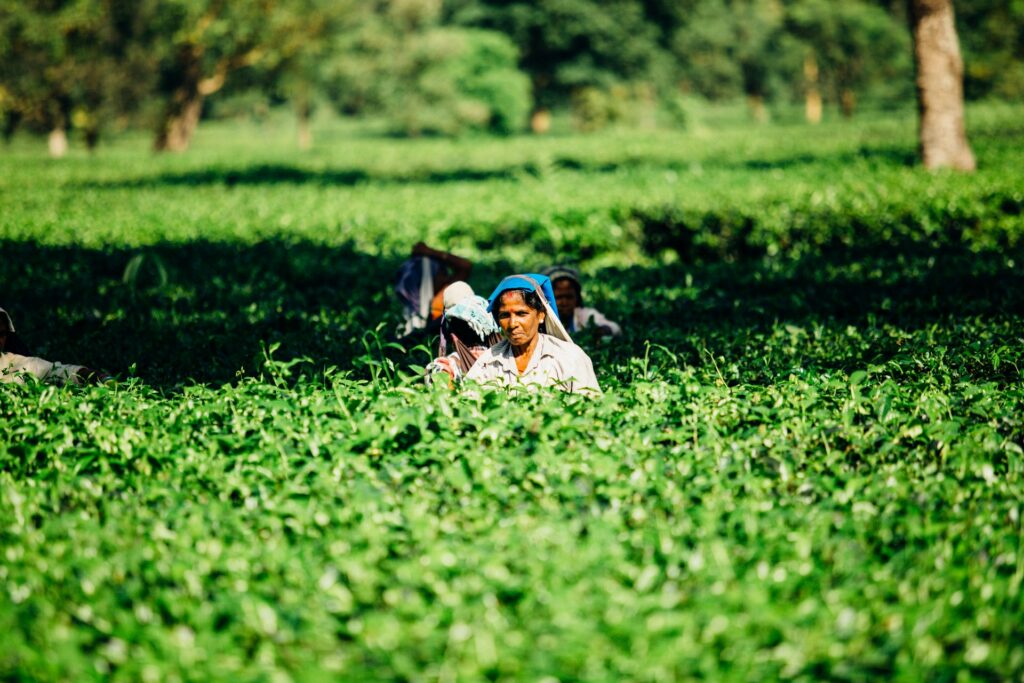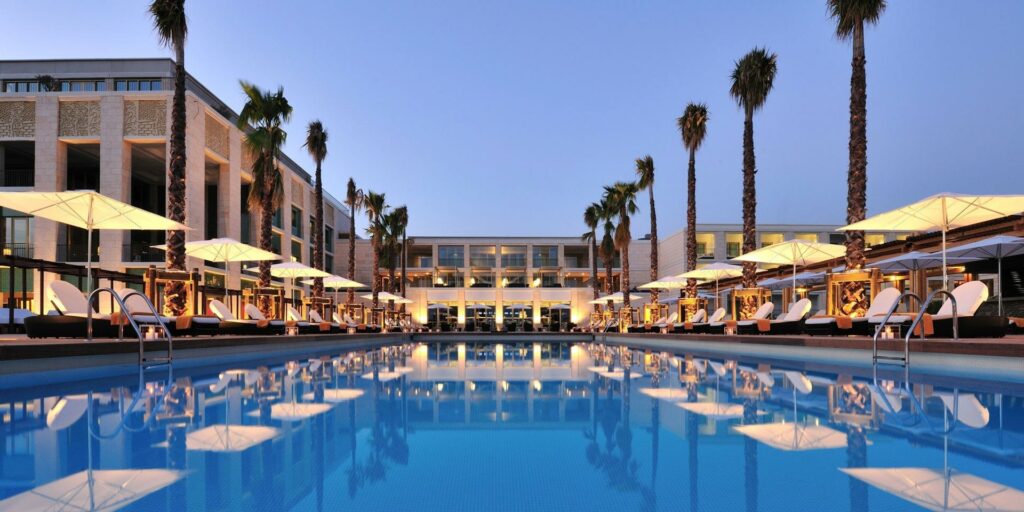Embracing Opportunities to Redefine the Future of Hotel

By ITB Community and Markland Blaiklock, Deputy CEO at Centara Hotels & Resorts
As the world tries to anchor itself amidst the COVID-19 crisis, we will need to apply a new perspective on customer engagement, product development and the whole spectrum of travel. ITB Community had a catch up with Markland Blaiklock, Deputy CEO at Centara Hotels & Resorts, to hear his thoughts and insights on what has changed in the hotel business landscape and how industry players across Asia Pacific can ultimately work together to bring travel back.
1. Can you share your observations and insights on some of the biggest changes in the hotel industry over the past 18 months?

Of course, the industry has been totally disrupted. For Thailand, since April last year, we have had to close hotels, reopen hotels, and re-close them again. We have had to rationalize all of our costs—in particular staff costs—organize ourselves differently, and essentially be continuously evolving as the landscape is changing.
Some of the more significant changes, I think, is about digital transformation. Everything is online now. In fact, most of our bookings over this difficult period have come from online, mostly on account of the interruption in long-haul travel with borders closed.
Another change is that we have to be flexible in terms of what we offer. Guests can have full intention of doing a trip, and then for no reason of no fault of their own, they have to change. But the problem with this flexibility is now we are seeing a very high incidence of cancelations and re-bookings, and this, of course, is putting pressure on rates.
Another significant change is social distancing and increased sanitation procedures. Most hotel groups, in addition to following what is mandated by governments, also implement their own certification processes to ensure that the standards are at the optimum level.
Right from check in to in room dining and check out, many services are now contactless. For example, when you arrive at a restaurant, the first thing you normally get is a menu and that no longer happens. You are now directed towards a QR code, and then you have to pull up the menu yourself.
Certainly there are many changes from both an organizational point of view, and also from a guest experience point of view.
2. What can help hotels bounce back more effectively? Would the “No Quarantine” vacation model like Phuket Sandbox be one of the kind?
I think in terms of bouncing back more effectively, the key element is restoring confidence in the travelers to travel again. This includes everyone doing their part to adhere to elevated safety and hygiene protocols, and ensuring all their staff are fully vaccinated.
You need to start somewhere. In the case of Thailand, they started with the Phuket Sandbox, which was a great initiative. Unlike other borders that were reopened, the Phuket Sandbox was announced several months in advance and proceeded on July 1 as planned.
Though the volumes that they were hoping to achieve were not achieved, there were still considerable arrivals and the program was deemed to have been a success.
As we speak, I think other similar destinations like Bali and islands in the Philippines are also considering similar initiatives.
How could it be improved?
First of all, it could be improved by making it easier to book, lowering PCR test costs, making it easier to access insurance and above all, reducing the quarantine period from 14 days to seven days and maybe even further.
In the case of Phuket, there is no quarantine required. You are not required to stay in a hotel room or even stay within the hotel. But at this point in time you are still required to stay on the island of Phuket for seven days and then for a further seven days on other islands that have opened up like Phuket. It is only after 14 days or 15 days that you would be able to travel to other locations within Thailand.
What more could be done? Expand the program.
As I say, it has been a success and there is talk of the program being expanded.
Unfortunately, some of the jurisdictions are controlled by the provinces. But as much as possible, if they could follow one approach that would make it far easier for travelers to understand what the requirements are and anything that can be done to simplify the processes would be valuable.
Another factor that could be done to improve Phuket Sandbox programme is to simplify domestic travel rules. Earlier this year leading up to the Songkran Festival, the domestic travel volumes were actually almost up to normal levels. But with the third wave, that all changed. Now as the situation is under control, hopefully greater simplification is going to happen with those domestic rules.
(Remarks: Since this interview took place, Thailand reopened its borders to fully vaccinated tourists from over 63 countries without the need to quarantine.)
3. Are there any trends in consumer behaviours that excite you or worry you?
Well, I will take the first half of that question first.
In terms of excitement, I think there is a tremendous amount of pent-up demand. People are keen to travel again, keen to experience what is on offer in exotic parts of the world, and keen to resume celebration travel—so many wedding events and reunion trips have been deferred for the past two years.
I think all of these aspects of travel will hopefully resume soon.
Another trend going into 2022 is the concept of workation of lifecation—longer stays blending work and life with holidays—a trend we are already seeing in 2021. It is a strong source of business and that interest amongst consumers will certainly go on into next year.
Technology advances in the industry, digital solutions, artificial intelligence, VR—all of these have taught us that they could be a mean get to the customer, but we remain a service industry and there is no substitute for the personal touch.
Use the technology advances in order to create efficiencies; but there will never be a substitute for that personal touch, especially in the mid-scale and above positioning of hotels.
Obviously, as people resume travel, they are going to be a little bit unfamiliar with doing it. So whatever we, as an industry, can do to provide them with great new experiences and surprises, will be very highly appreciated.
A worrying trend is, as I mentioned earlier, the increased shopping around. With the escalation in digital applications, everyone is shopping around, making duplicate bookings and canceling bookings. It is important that our policies, as well as the industry’s policies, are flexible. However, hopefully it will not result in rate erosion or rate competition, which will just lower pricing to below what would be expected for what is on offer, and ultimately slow down the recovery for hotels.
Finally, the consensus, I think, is that leisure travel will resume first, even blending a little bit of work with their leisure travel. It will certainly take a longer time for the return of business travel and even longer for the return of MICE, especially the large exhibitions or the large association meetings that were bringing a whole profession together in one city.

4. When do you think the international travel market will return and when it does, where will the opportunities be?
Well, I wish I had a specific response to that. All I can say is that vaccinations, normalizing travel and opening up borders are crucial. The airline business has been decimated like the hotel industry, and it will take some time for the air capacity to be brought back up to the levels that it was at previously. Eliminating the need for quarantine and not making any compromise to health and safety protocols are also key elements.
We are already seeing increased interest for overseas travelers for our hotels and resorts and more positive numbers for Q4, but this is still off a very low base.
The recovery to pre-COVID numbers will take time and certain destinations will bounce back faster than others. In my view, this could span between 2023 and 2025.
Maldives opened up very early by middle of 2020, and the recent two months—August and September 2021—saw them back up to pre-COVID levels in terms of tourist arrivals. But in terms of getting back up to the average for a full-year period, that is not likely to happen until 2023.
In the case of Thailand, which is more dependent on international travelers, the recovery will certainly take a longer time. We are estimating probably not before end of 2024 and 2025.
What opportunities are created?
The first one is for Thailand to showcase its beauty after nature has been allowed to rejuvenate for two years with travel restrictions in place. Secondly, new destinations would emerge to enable travelers to discover new experiences and avoid over congestion as in the past.
In pre-COVID years, especially 2019, Thailand used to receive 40 million travelers a year, becoming one of the most frequently visited countries in the world. Does it really need 40 million travelers a year? Of course, a major share of that was coming from China, and the thought is that the number will probably be reduced in future years. But hopefully the spending power of the reduced number will be at a higher level. So from a revenue point of view, it will be at the same level as pre-COVID, but perhaps not the same number of inbound travelers, which will also be good for nature.
5. How has the pandemic changed you as a leader? What are the leadership lessons you will carry with you beyond the recovery?
First of all, I would say that the pandemic disruption has provided a big learning opportunity, and I believe it has changed us all not only at work, but also in our personal lives.
Two years ago, it was something we could never have imagined and much less be prepared for from the impact from the fallout of the pandemic.
For me personally, it has reinforced the need for empathy and compassion, and to recognize the value and importance of our people.
Being equally effective remotely has been a novel adjustment in the people-facing industry. Everything can change quickly, and we have learned to adapt quickly in order to survive.
As a leader, especially during times of crisis, transparency and communication is crucial in keeping our staff, clients, and partners together to build their confidence that we will get through it together.






Responses